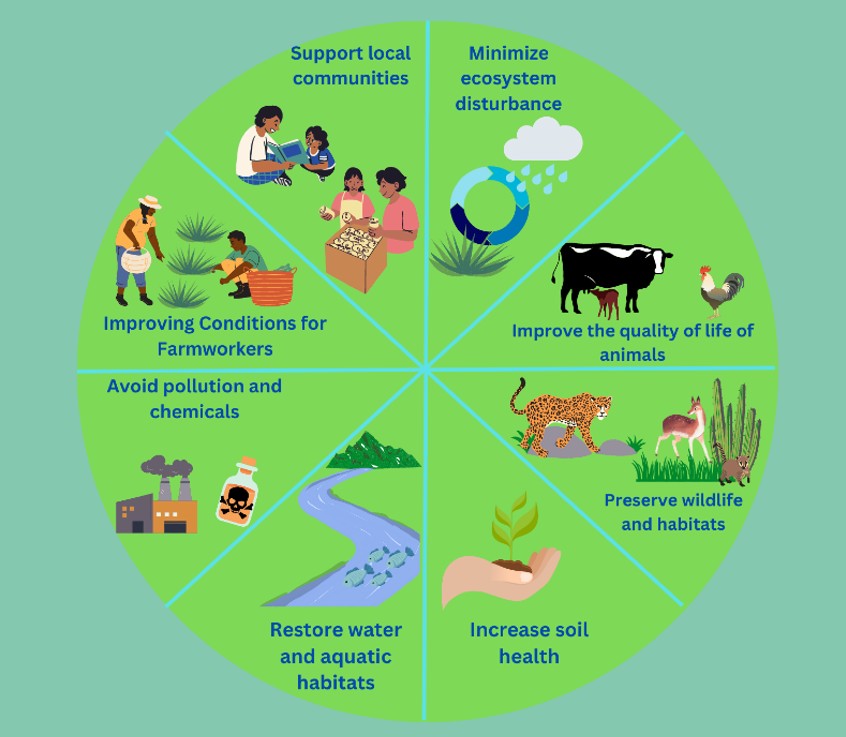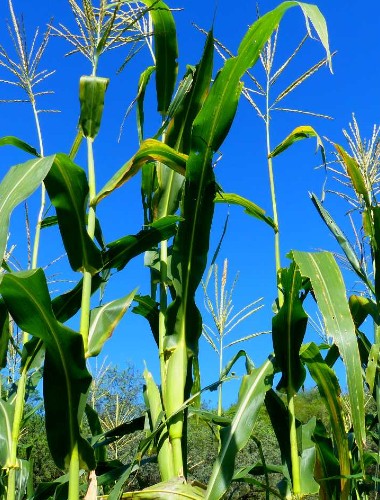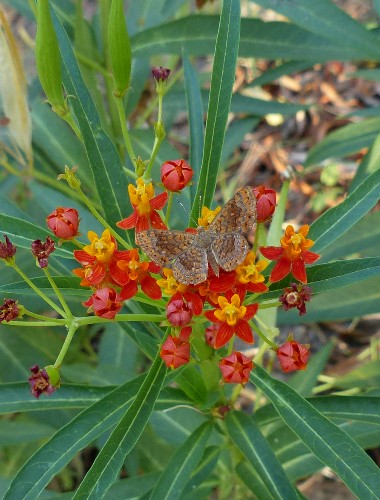Regenerative Agriculture
Regenerative agriculture is the future of our food systems. With an estimated 50 years of productive topsoil left in the world, a change must happen, and quickly. Agriculture is responsible for releasing 8 billion tons of CO2 or nearly a quarter of total greenhouse emissions worldwide. Industrial farming practices have caused significant soil damage and biodiversity loss at a worldwide scale.
Principles of Regenerative Agriculture

What does agriculture have to do with jaguars? To protect the jaguar and humans at the local level, we must work from the ground up.

The soils in this region are suffering. Overgrazing and current farming practices are stripping the land of nutrients, releasing carbon dioxide and moisture, and accelerate the erosion of fertile topsoil. Farm plots are seeded with monocultures that limit the diversity of beneficial plants and insects, further reducing the available nutrients in the soil. Crops are treated with pesticides and fertilizers to chemically increase the productivity of depleted soils, and native species like deer and javelina are poisoned or shot for raiding crops, leading to a decrease in available prey for the jaguar.
We have witnessed the environmental degradation from current agriculture practices that lead to jaguar persecution, and it all comes down to the soil.
The foundation for a healthy ecosystem is healthy soil. La Tierra del Jaguar teaches and supports systems that restore biodiversity, regenerate soils and mitigate climate change.
We promote the advantages of permaculture, cover crops, composting, water harvesting, pollinator species and rotational grazing as ways for farmers to increase yields, decrease chemical inputs and restore soil.



